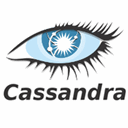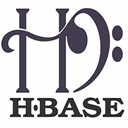Top NosDB Alternatives: Find Your Ideal NoSQL Database
NosDB is a powerful, 100% native .NET Open Source NoSQL Database, praised for its speed, linear scalability, and flexible JSON schema that accelerates development. However, for various reasons—be it specific feature requirements, platform preferences, or simply exploring the broader NoSQL landscape—developers often seek robust NosDB alternatives. This guide explores the leading options available, helping you discover the perfect fit for your next project.
Best NosDB Alternatives
Whether you need enhanced scalability, more flexible data models, or broader community support, the following alternatives offer compelling features that stand out in the NoSQL database space.

MongoDB
MongoDB is a leading document database that offers the scalability and flexibility desired from a NoSQL solution, combined with powerful querying and indexing capabilities. As a free and open-source option available across Mac, Windows, Linux, Web, and BSD, it's an excellent NosDB alternative for those needing a versatile NoSQL database with flexible JSON data storage.

Apache Cassandra
Apache Cassandra has become a premier NoSQL platform, celebrated for its continuous availability and high scalability, driving numerous modern business applications. This free and open-source database, available on Mac, Windows, Linux, and BSD, is a strong NosDB alternative, especially for projects demanding persistent storage and a highly scalable NoSQL and relational database solution.

CouchDB
Apache CouchDB is a distributed, fault-tolerant, and schema-free document-oriented database accessible via a RESTful HTTP/JSON API, featuring incremental map/reduce. Being free and open-source across Mac, Windows, Linux, Android, and BSD, CouchDB serves as a robust NosDB alternative for developers seeking a database server with a strong REST API and NoSQL capabilities.

RethinkDB
RethinkDB excels at pushing JSON data to applications in real-time, making it an excellent NosDB alternative for projects requiring live data updates. This free and open-source distributed database is available on Mac, Windows, Linux, and BSD, designed to overcome the limitations of traditional polling for data by providing a real-time data streaming solution.

CockroachDB
CockroachDB is a distributed key/value datastore supporting ACID transactional semantics and versioned values, with a primary goal of fault tolerance and linear scalability. As a free and open-source option for Mac, Linux, and BSD, it's a compelling NosDB alternative for those needing a relational database with strong consistency and developer tools for business intelligence.

CouchBase
Couchbase is a leading NoSQL database in terms of market share, with production deployments across major companies. This free and open-source NoSQL database, compatible with Mac, Windows, and Linux, offers a powerful NosDB alternative for enterprises seeking a proven and robust NoSQL solution with high performance and flexibility.

Apache HBase
Apache HBase is an open-source, non-relational, distributed database modeled after Google's BigTable and written in Java. Developed as part of Apache Software, this free and open-source database for Linux and Web environments is a suitable NosDB alternative for those requiring massive scale and real-time read/write access to large datasets.

Orient DB
OrientDB is a versatile Document-Graph database that supports SQL and Native Queries, asynchronous commands, and more. Available as free and open-source for Mac, Windows, and Linux, it provides an excellent NosDB alternative for developers who need the flexibility of both document and graph models, with support for Java, PHP, and Python.

VoltDB
VoltDB is a high-performance NewSQL database system specifically designed for modern scale-out architectures. This free and open-source database, available on Mac, Windows, and Linux, is a fast NosDB alternative ideal for applications requiring extremely high throughput and low-latency transactions on inexpensive, connected servers.
Each of these NosDB alternatives brings unique strengths to the table, from real-time data streaming to robust transactional capabilities and diverse data models. We encourage you to explore each option further to determine which best aligns with your project's specific requirements, development environment, and performance needs.